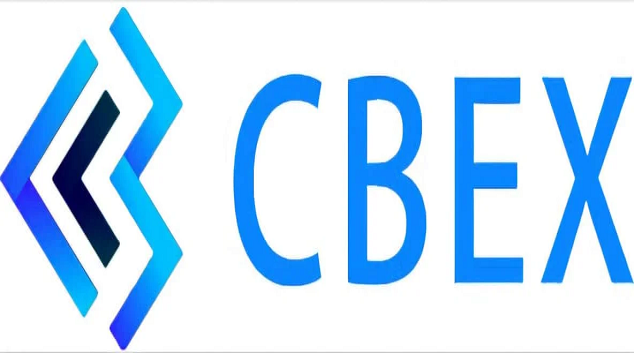E-Financial
EFCC Arraigns Hackers for Allegedly Stealing N900m from FCMB

Hackers have reportedly stole N900 million from First City Monument Bank (FCMB) in what could be one of the largest online heists ever, according to transcripts from an Ikeja Special Offenses Court, Lagos.

According to thenigerianvoice.com, hackers surreptitiously installed spying software on bank computers, eventually learned how to mimic bank employee workflows and used the knowledge to make transfers into bank accounts they had created for this theft.
Customers of the bank lost a whooping N900 million according to the Economic and Financial Crimes Commission (EFCC).
Already seven accused suspects have been arraigned.
They are: Gideon Oluwatimileyin, Abiodun Aina, Samuel Adenitiri, Oluwasegu Daliu, Olaitan Ajibola Sheu, Moyosore Suleiman and Adeyinka Akinjin.
According to Benedict Chima Benneth, EFCC’s lawyer, the defendants allegedly committed the offence on March 10, 2018 in Lagos.
They were arraigned by the anti-graft agency on a two-count charge of conspiracy to defraud and unauthorized access to FCMB’s computer materials and software.
All the accused persons alongside Osita Martins, Daramola Samuel Akanji and others still at large sought, did steal by unauthorized transfers and withdrawals from various FCMB points nationwide of the sum of N900 million, property of the owners of and various customers of FCMB from their account to various accounts outside the bank via POS and ATM.
“The defendants did effect unauthorized modifications, alterations, and adjustment of the bank computer data program by increasing the transaction withdrawal limits and transaction counts of the victim, customers’ accounts as programmed by the bank, that enabled you make withdrawals and transfers from various FCMB points nationwide. The accused persons, however, pleaded not guilty to the count charges.
Justice Oluwatoyin Taiwo, granted bail to the 1st, 2nd and 3rd accused persons following a bail application from their lawyers.
They were granted a-N20 million bail bond with two sureties in like sum.
E-Financial
SEC Urges IST to Freeze all CBEX Bank Accounts in Nigeria

The Securities and Exchange Commission (SEC) has asked the Investments and Securities Tribunal (IST) to order the freezing of all bank accounts belonging to Crypto Bridge Exchange (CBEX) and other defendants held in commercial banks and financial institutions across Nigeria.

The request was made in Suit No. IST/OA/02/2025: Securities and Exchange Commission & Anor v. Crypto Bridge Exchange (CBEX) & 25 Others, the first case before the 6th Tribunal presided over by Hon. Aminu Jinaidu, Chairman of the IST.
SEC also urged the Tribunal to seize houses and other assets allegedly acquired by the defendants using proceeds obtained from the public through the CBEX investment scheme, which it said falsely operated as a digital assets platform and capital-market operator.
The Commission argued that CBEX, which is not registered with SEC, unlawfully promised investors a 100 percent return on investment within 30 days—conduct it said is in violation of Section 3(b) of the Investments and Securities Act, 2025.
SEC further disclosed that the Securities and Futures Commission of Hong Kong had, on April 23, 2024, issued an advisory warning against CBEX, describing it as a suspicious virtual-asset entity. According to the advisory, CBEX adopted a name resembling that of a Chinese property-rights trading organisation to give investors false assurance, despite having no connection with the legitimate entity.
At Tuesday’s sitting, the Tribunal ordered that hearing notices be served on the defendants through national newspapers, as CBEX failed to appear and was not represented in court.
CBEX launched in Nigeria in July 2024, operating through a website and mobile app. It claimed to use advanced artificial intelligence to generate unusually high profits from cryptocurrency trading, promising returns of up to 100 percent within a 40- to 45-day lock-in period. The scheme later collapsed and was exposed as a Ponzi operation that reportedly defrauded investors of more than N1.3 trillion (about $800 million).
Hon. Jinaidu also presided over several other matters on the tribunal’s docket, including Benue Investments Property Co. Ltd & Anor v. Securities and Exchange Commission & 6 Others; Maven Asset Management Ltd v. Securities and Exchange Commission; John Makinde Onade & Anor v. First Registrars & Investors Services Ltd & Anor; and Securities and Exchange Commission & Anor v. Tourist Company of Nigeria PLC & 6 Ors. All the cases were adjourned to January 27, 2026.
E-Financial
CBN Rejigs Financial Inclusion Strategy to Boost Economic Growth

Philip Ikeazor, the Central Bank of Nigeria’s Deputy Governor for Financial System Stability, said financial inclusion must remain a core priority in the nation’s economic transformation agenda, reaffirming that the next phase of CBN reforms will be crucial for driving growth, stability, and poverty reduction.

Represented by Aisha Issa Olatinwo, director of consumer protection and financial inclusion at the 9th Annual Financial Markets Conference organised by the Financial Markets Dealers Association, Ikeazor noted that the connection between financial inclusion, economic stability, and national growth is now clearer than ever, describing inclusion as a fundamental pillar for improving livelihoods.
“Every individual should be able to access secure and reliable financial services with the potential to increase prosperity, reduce poverty, and enable social well-being,” he said.
Despite progress over the past decade, particularly the rising adoption of digital wallets, bank accounts, and formal financial channels, he acknowledged that key barriers persist. Rural and low-income populations still face challenges such as limited access points, low financial literacy, infrastructure gaps, and regulatory constraints.
Ikeazor highlighted improvements recorded between 2012 and 2023, including declines in the number of adults depending solely on informal financial systems, but warned that more work is required to close remaining access gaps.
He reaffirmed the apex bank’s commitment to accelerating reforms under the National Financial Inclusion Strategy, which is currently being updated to its next phase, NFIS 4.0.
The revised framework, he said, will focus on strengthening digital channels, deepening credit access, and ensuring underserved groups are better supported.
“Policy remains at the heart of our efforts,” he noted. “We have implemented a range of initiatives from the original strategy to the current version under review, which will come out as NFIS 4.0.”
According to Ikeazor, technology remains the most powerful driver of inclusion. Digital financial services ranging from mobile wallets to fintech-enabled credit are breaking old barriers and enabling millions to access services previously out of reach.
He added that the CBN is working to ensure a safe digital environment by prioritising cybersecurity, consumer protection, and responsible innovation.
He also outlined how financial inclusion fuels economic expansion: improved credit access, greater participation in the economy, increased savings and investment, stronger resilience to shocks, and more opportunities for job creation and poverty reduction.
“Financial inclusion can help reduce income inequality and grow the economy to its full potential,” he said.
The Deputy Governor stressed that collaboration across stakeholders, regulators, financial institutions, fintech innovators, civil society, and development partners will determine the success of Nigeria’s inclusion agenda.
“Achieving our vision requires collaboration across governments, regulators, financial institutions, technology developers, civil society and the public,” he said, urging stakeholders to recommit to building a resilient and future-proof financial system.
He added that Nigeria’s youthful demographics and rapid digital adoption present a significant opportunity to achieve near-universal financial inclusion in the coming years.
E-Financial
FG, SEC, NGX Group Agree on Capital Gains Tax Reform

The Federal Government has inaugurated the National Tax Policy Implementation Committee (NTPIC), marking a deliberate shift toward a more predictable and market-aligned rollout of the newly enacted capital-gains-tax (CGT) provisions.

The move follows extensive technical engagements with key capital-market institutions, including the Securities and Exchange Commission (SEC) and Nigerian Exchange Group (NGX Group), reflecting policymakers’ recognition of the market’s role in sustaining liquidity, price discovery and long-term capital formation.
Chaired by leading tax and fiscal-policy expert Joseph Tegbe, the committee has been tasked with steering the implementation process toward clarity, investor protection and policy coherence. Its mandate includes ensuring transparent guidelines, broad stakeholder consultation and an execution framework that minimizes market disruption while reinforcing confidence among domestic and foreign investors.
Tegbe said the government would avoid policies that risk disrupting market activity or business investment. “Implementation of the new tax laws will be fair, transparent and humane. We will not roll out these policies in a way that cripples businesses or investors. Stakeholder engagement will be central to this process,” he said at the inauguration.
The shift follows sustained engagements by NGX Group and the SEC, during which market operators outlined the potential implications of a rapid CGT rollout on liquidity, investor sentiment and the market’s competitiveness at a time when Nigeria is seeking deeper pools of domestic and foreign capital.
Temi Popoola, GMD/CEO of NGX Group, commended the government’s approach, noting that the group, in collaboration with the SEC, has consistently advocated for a data driven approach that balances fiscal objectives with the need to preserve market depth. “We support the modernisation of Nigeria’s tax system, but reforms of this scale must be carefully calibrated to protect liquidity, sustain participation and maintain competitiveness,” he said.
He added, “Our engagements with government have focused on ensuring that implementation supports the capital market’s role in long-term investment and economic growth.”
Popoola noted that global competitiveness hinges not only on policy intent but also on the precision of execution, particularly for emerging markets seeking cross-border flows.
The government’s consultations intensified after the Honourable Minister of Finance and Coordinating Minister of the Economy, Wale Edun, visited NGX Group, where market operators outlined the potential unintended consequences of an abrupt CGT rollout.
Analysts view the inauguration of the NTPIC as a constructive signal to investors, indicating that authorities intend to anchor fiscal reforms in evidence and consultation, rather than speed alone.
Both SEC and NGX Group have pledged continued collaboration with the committee to ensure that the eventual CGT implementation supports confidence, broadens participation and aligns with long-term capital-market development objectives.

 News2 days ago
News2 days agoLagos Launches Tele-Vet, Nigeria’s First Veterinary Call Centre

 General News3 days ago
General News3 days agoNiDCOM Launches Diaspora Startup Challenge to Boost Nigerian Talent

 E-Financial3 days ago
E-Financial3 days agoCAC to Shut Down Unregistered PoS Operators by January 2026

 Telecom3 days ago
Telecom3 days agoNigeria Lacks AI-Ready Data Centres, Trails in Capacity – Nnamani

 Telecom3 days ago
Telecom3 days agoAnambra Leads Southeast in Digital Governance Under Soludo’s ICT Agenda

 General News3 days ago
General News3 days agoOptimus AI LABS CEO Showcases AI Breakthroughs in Nigeria’s Financial Sector

 General News3 days ago
General News3 days agoPromoPrint Rekindles Nigerian Resilience @ 25th Anniversary

 Telecom2 days ago
Telecom2 days agoNigeria Dominates 2025 TikTok Sub-Saharan Africa Awards with Six Wins


























